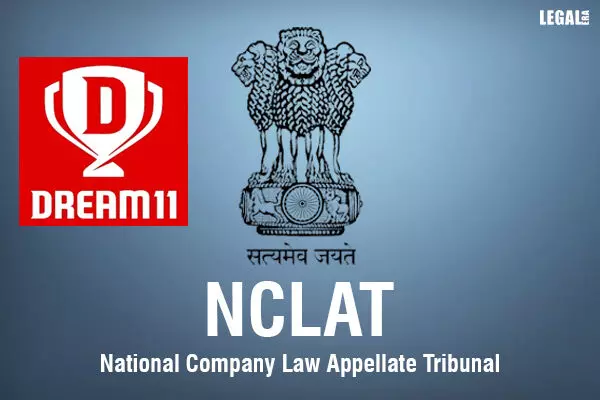- Home
- News
- Articles+
- Aerospace
- Artificial Intelligence
- Agriculture
- Alternate Dispute Resolution
- Arbitration & Mediation
- Banking and Finance
- Bankruptcy
- Book Review
- Bribery & Corruption
- Commercial Litigation
- Competition Law
- Conference Reports
- Consumer Products
- Contract
- Corporate Governance
- Corporate Law
- Covid-19
- Cryptocurrency
- Cybersecurity
- Data Protection
- Defence
- Digital Economy
- E-commerce
- Employment Law
- Energy and Natural Resources
- Entertainment and Sports Law
- Environmental Law
- Environmental, Social, and Governance
- Foreign Direct Investment
- Food and Beverage
- Gaming
- Health Care
- IBC Diaries
- In Focus
- Inclusion & Diversity
- Insurance Law
- Intellectual Property
- International Law
- IP & Tech Era
- Know the Law
- Labour Laws
- Law & Policy and Regulation
- Litigation
- Litigation Funding
- Manufacturing
- Mergers & Acquisitions
- NFTs
- Privacy
- Private Equity
- Project Finance
- Real Estate
- Risk and Compliance
- Student Corner
- Take On Board
- Tax
- Technology Media and Telecom
- Tributes
- Viewpoint
- Zoom In
- Law Firms
- In-House
- Rankings
- E-Magazine
- Legal Era TV
- Events
- Middle East
- Africa
- News
- Articles
- Aerospace
- Artificial Intelligence
- Agriculture
- Alternate Dispute Resolution
- Arbitration & Mediation
- Banking and Finance
- Bankruptcy
- Book Review
- Bribery & Corruption
- Commercial Litigation
- Competition Law
- Conference Reports
- Consumer Products
- Contract
- Corporate Governance
- Corporate Law
- Covid-19
- Cryptocurrency
- Cybersecurity
- Data Protection
- Defence
- Digital Economy
- E-commerce
- Employment Law
- Energy and Natural Resources
- Entertainment and Sports Law
- Environmental Law
- Environmental, Social, and Governance
- Foreign Direct Investment
- Food and Beverage
- Gaming
- Health Care
- IBC Diaries
- In Focus
- Inclusion & Diversity
- Insurance Law
- Intellectual Property
- International Law
- IP & Tech Era
- Know the Law
- Labour Laws
- Law & Policy and Regulation
- Litigation
- Litigation Funding
- Manufacturing
- Mergers & Acquisitions
- NFTs
- Privacy
- Private Equity
- Project Finance
- Real Estate
- Risk and Compliance
- Student Corner
- Take On Board
- Tax
- Technology Media and Telecom
- Tributes
- Viewpoint
- Zoom In
- Law Firms
- In-House
- Rankings
- E-Magazine
- Legal Era TV
- Events
- Middle East
- Africa
Dream11 Parent Company Sporta Technologies Challenges NCLT’s Insolvency Order in NCLAT

Dream11 Parent Company Sporta Technologies Challenges NCLT’s Insolvency Order in NCLAT
Dream11's parent company, Sporta Technologies, on Tuesday, launched a counteroffensive against the National Company Law Tribunal (NCLT) Mumbai's order admitting an insolvency petition filed by Reward Solutions. This move follows Monday's verdict by the NCLT, which appointed an interim resolution professional to oversee a potential insolvency process against the fantasy gaming giant.
Bhavit Seth, representing Sporta's suspended board, led the appeal charge before the National Company Law Appellate Tribunal (NCLAT) in Delhi. The core of the dispute revolves around ₹7.61 crore in alleged unpaid dues by Sporta for office premises leased from Reward Solutions in December 2019 at Lower Parel in Mumbai.
However, Sporta contends the situation is more nuanced. They argue the license fees were subject to negotiation, which Covid-19 disruptions prevented, and raise questions about the true ownership of the premises, suggesting it might belong to a third party called Mangalam Vanijya.
Further complicating matters, Sporta claims the Enforcement Directorate (ED) has issued an attachment order on the premises. Additionally, they argue the alleged default falls within the "Section 10A period" of the Insolvency and Bankruptcy Code (IBC), rendering a Corporate Insolvency Resolution Process (CIRP) against them inapplicable.
This provision, introduced by the government, temporarily restricts CIRP applications for defaults arising after March 25, 2020.
NCLT, however, dismissed these arguments. It deemed the debt owed to Reward Solutions operational and saw no pre-existing dispute regarding its validity. "This petition deserves to be admitted," the Tribunal declared.



